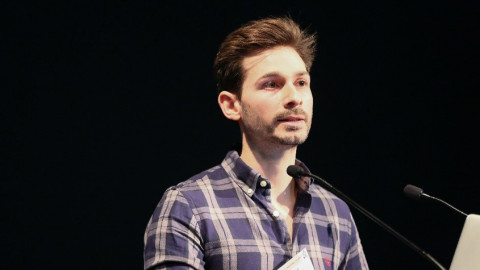
foto: Courtesy of OEPM
Spanish physicist David Martínez Martín is developing new technologies to improve understanding of cell development and is working to promote the development of effective innovation ecosystems that enable scientific innovation. He holds a number of patents in the fields of nanotechnology, biotechnology and biomedicine.
Cell growth is a fundamental process for all living organisms, yet the technology required to measure and study these processes has limited scientists’ ability to investigate and understand these phenomena.
Cell growth and its regulation is linked to aging and diseases like cancer, diabetes, obesity, and cardiovascular disease. David Martínez Martín is helping shed light on these processes through the development of advanced technologies that make it possible to probe cell development giving rise to new insights and perspectives for improving healthcare.
Somehow, the cells that make up our eyes, heart, hands, brain, etc., know how much they have to grow and proliferate to form our organs with exquisite precision. Surprisingly, today very little is known about how these processes work, David explains.
In his search to decipher and control the regulation of the mass and size of the cells, David is looking to work with a range of actors, including creatives, entrepreneurs, investors, and others to create effective innovation ecosystems, particularly, in the area of public health.
Together with the Dean of Law of the University of Sydney, Professor Simon Bronitt, David has co-founded the Sydney Innovation Program, which promotes solutions to today's public health challenges, and explores the nexus between law, innovation and science to help promote the development of innovation ecosystems. “As a physicist I use my creativity, curiosity and expertise to develop innovative technologies helping companies and researchers to thrive,” David says.
David is very familiar with the intellectual property ecosystem, having applied for his first patent some 10 years ago during his doctoral studies at the Autonomous University of Madrid. Since then, he has secured a number of other patents, including for a measuring device to determine cell mass and a method for controlling a scanning microscope for atomic force microscopy (AFM).
From his experience in developing innovative technologies and securing patents, David is convinced that intellectual property plays a key role in developing robust knowledge-based economies.
Industrial and intellectual property allow innovations to be transformed into useful products for society, generating wealth and increasing well-being - David says.
David’s research has been published in a number of prestigious international scientific journals including Nature, Nature Biotechnology, and Nature Nanotechnology.
David is featured at the World Intellectual Property Day Youth Gallery.